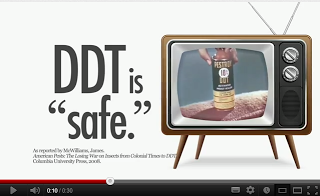

| Visitors Now: | |
| Total Visits: | |
| Total Stories: |

| Story Views | |
| Now: | |
| Last Hour: | |
| Last 24 Hours: | |
| Total: | |
Why Did Proposition 37 Fail? | Food Safety News
Monday, November 19, 2012 18:00
% of readers think this story is Fact. Add your two cents.
Karl Haro Von Mogel surveys the Californian Proposition 37 electoral aftermath:
On November 6, 2012, Californians voted on Proposition 37, which would have required that foods produced from genetically engineered crops be labeled as such. Support for Prop. 37 was high two months before the election, but it plummeted in the final month to a near tie. It was defeated 53 to 47 percent, and this reversal of public opinion about the proposition has led to many speculations about why it failed. Michele R. Simon, a lawyer and paid writer and spokesperson for the Yes on 37 campaign argued that it lost due to “Lies, Dirty Tricks, and $45 million,” pinning its defeat almost entirely on being outspent by industry using “propaganda and dirty tricks.”
However, I believe she missed an opportunity to assess the mistakes committed by the Yes on 37 campaign, along with the proposition’s inborn errors. I would like to offer an alternative view on the reasons why Proposition 37 failed, and make some suggestions that labeling proponents might want to take to heart.
Lie for a Lie?
First, I would like to address a few of the claims about “lies” and “dirty tricks” that Simon listed. She pointed out that No on 37 made an error in identifying Henry Miller as being with Stanford University, rather than the Hoover Institution at Stanford University, leading to the ad being pulled and redone. Stanford University has a policy against advocacy that may imply that the University supports the opinions being expressed.
However, the Yes on 37 also pulled and re-edited their own video after a similar error, which implied that James McWilliams Ph.D., an associate professor at Texas State University at San Marcos, had said that DDT was “safe.” McWilliams told me in an email, “It’s a gross distortion of what I argue in my book. Frankly, I’m offended by the way I’ve been taken out of context, especially by an organization seeking transparency.” The old version was hidden from view (but still available online),
changed, and just like the No campaign, no public apology was made…
Continues @ Why Did Proposition 37 Fail? | Food Safety News:
2012-11-19 17:41:21
Source: http://gmopundit.blogspot.com/2012/11/why-did-proposition-37-fail-food-safety.html
Source:



